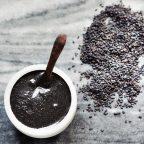Posts Tagged ‘black seed oil benefits diabetes’

Is Black Seed Oil Good for Diabetes?
Can black seed oil be used to treat diabetes?
Natural healers promote black seed oil for its range of health advantages. It is also known as N. saliva oil and black cumin oil. The seeds of the Nigella sativa plant sometimes referred to as kalonji, are used to make the oil.
In Indian and Middle Eastern cuisine, both the oil and the seeds are employed.
Diabetes is a frequent condition that impairs the body’s capacity to make and utilize insulin. This illness leads to high blood sugar levels among other things (glucose). Medication to assist control of blood sugar is frequently part of the treatment. Diabetes comes in two basic varieties: Type 1 and Type 2.
Finding complementary and alternative therapies that can aid in the control of blood sugar levels is a current area of research. The subject of some of the studies is black seed oil. It has demonstrated several promising outcomes, such as:
• N. saliva seeds play a significant role in the treatment of diabetes, according to a 2016 review published in the British Journal of Pharmaceutical Research (enhancing insulin production, glucose tolerance, and beta cell proliferation). As a result of the review, it was determined that the seeds can be highly effective in treating diabetes problems such as nephropathy, neuropathy, and atherosclerosis.
• A 2013 study came to the conclusion that high doses of N. Sativa oil had a therapeutic impact on diabetic mice by considerably raising serum insulin levels.
• According to a 2017 study, black cumin seed oil over time decreased HbA 1 c, or the average blood glucose levels, by boosting insulin production, lowering insulin resistance, boosting cellular activity, and reducing intestinal insulin absorption.
Black seed oil components
One of the most powerful components of black seed oil’s hypoglycemic effect, according to a 2015 assessment of medical journals, maybe thymoquinone. For usage in clinical trials on diabetic patients, the evaluation recommended doing molecular and toxicological investigations to determine the most potent and secure components of the seed.
The black seed oil contains the following antioxidants as active components:
• thymoquinone
• beta-sisterol
• nigellone
The oil also contains amino acids such as:
• linoleic
• oleic
• palmitic
• stearic
Also found in black seed oil are:
• selenium
• calcium
• iron
• potassium
• carotene
• arginine
Conclusion
Studies on black seed oil as a possible therapy for diabetes have yielded encouraging findings. However, in order to completely understand its safety for persons with other health conditions (apart from diabetes) and to ascertain how black seed oil interacts with other treatments, large-scale clinical research is still required.
Consult your doctor before taking black seed oil if you’re thinking about using it to control your diabetes. They can offer advantages and disadvantages of how black seed oil will affect your existing health. They can also advise you on how frequently you should check your blood sugar when you first start.
If you decide to use black seed oil following a discussion with your doctor, make sure the brand you choose has undergone efficacy and safety testing. The Food and Drug Administration (FDA) doesn’t keep an eye on how these supplements are sold in the US.
FAQ
Can black seed oil reduce blood sugar?
According to a study, black seed oil helps diabetes patients’ blood sugar levels and insulin production. The synthesis of insulin may be enhanced and blood sugar levels may be controlled, according to research on black seed oil.
How long does it take for black seed oil to lower blood sugar?
Data from Phytotherapy Research showed that compared to a placebo, eight weeks of treatment with one gram of a Nigella sativa oil extract per day resulted in substantial reductions in fasting blood sugar levels, total and LDL cholesterol, BMI, waist circumference, and blood pressure.
Can you take black seed oil with metformin?
Some persons may have blood sugar reduction from black seed. Blood sugar is lowered with the use of diabetes treatments. You run the risk of having excessively low blood sugar if you take black seed together with diabetes treatments.
Which is Better Black seed oil or powder?
Black seed oil was even found to be more efficient than black seed powder at lowering fasting blood sugar levels, according to a study of 17 trials.
Can you take black seed oil and vitamin D together?
The standardized black seed oil and vitamin 03 work together, according to research. Black seed oil decreased inflammatory biomarkers and boosted the immune system when used in conjunction with vitamin 3.
Is it good to take black seed oil before bed?
Black cumin oil, which is high in thymoquinone, helps healthy subjects with sleep disturbances by enhancing their quality of sleep and reducing anxiety and stress.
Can I take black seed oil every day?
Black seed oil can be consumed up to three teaspoons per day, according to recommendations. There are no additional health advantages to taking more than three teaspoons per day. This amount is more than enough for many people because of how strong its flavor is! You can consume it plain or add it to your preferred recipes.
Does black seed oil increase blood flow?
By increasing the availability of nutrients and oxygen to the cells, black seed extract aids in the improvement of blood circulation.
Which is Better black seed oil or fish oil?
According to studies, the black seed oil is superior to omega-3 fish oil on its own.
Can I take black seed oil alone?
One teaspoon of raw black seed oil can be ingested each day. You might want to combine it with honey or lemon juice due to its strong flavor.
Does black seed lower blood pressure?
Black seed may benefit healthy people with their blood pressure, according to a preliminary study. The cholesterol is also reduced. In comparison to women who didn’t take the supplements, those who took black seed supplements and followed a low-calorie diet significantly reduced their cholesterol.
Can I take omega-3 with black seed oil?
Inflammation brought on by a high-fat (Western) diet may be greatly reduced by mixing omega-3 fatty acids with a standardized oil from black cumin (Nigella saliva), according to a recent study conducted at New York Medical College (NYMC) last summer and published in Antioxidants.
Does black seed oil have collagen?
Strengthening the collagen and elastin fibers in the skin is made possible by the anti-aging Vitamin A content of black cumin seed oil. To help reduce the appearance of dark spots and even out skin tone, black cumin seed also contains a wealth of fatty acids and amino acids.
xiv. Is black seed good for energy?
The benefits of the black seed for the immune system were highlighted in (lbn Sina) Avicenna’s 1025 A.O. Canon of Medicine, who employed the seed to improve physical vitality and hasten tiredness recovery.
How long can I take black seed oil?
Black seed oil is probably safe for the majority of individuals to consume when used sparingly in cooking. There is, however, no information on the long-term safety of using higher doses for medicinal purposes. In general, there haven’t been any major negative effects associated with short-term use of three months or less.
Does black seed oil make you sleepy?
The natural sleep aid black seed oil is used. A better night’s sleep can be achieved by using black seed oil, according to research, by reducing sleep disruptions. One teaspoon each of black seed oil and honey can be mixed in warm milk and taken by those who suffer from insomnia one hour before bed.
Who should not take black seed oil?
Black seed oil should not be consumed by infants, women who are pregnant, or women who are nursing. There may be interactions between specific medications, botanicals, and dietary supplements.
Please Note: Prior to beginning a supplement, always check with your health care provider or doctor.


